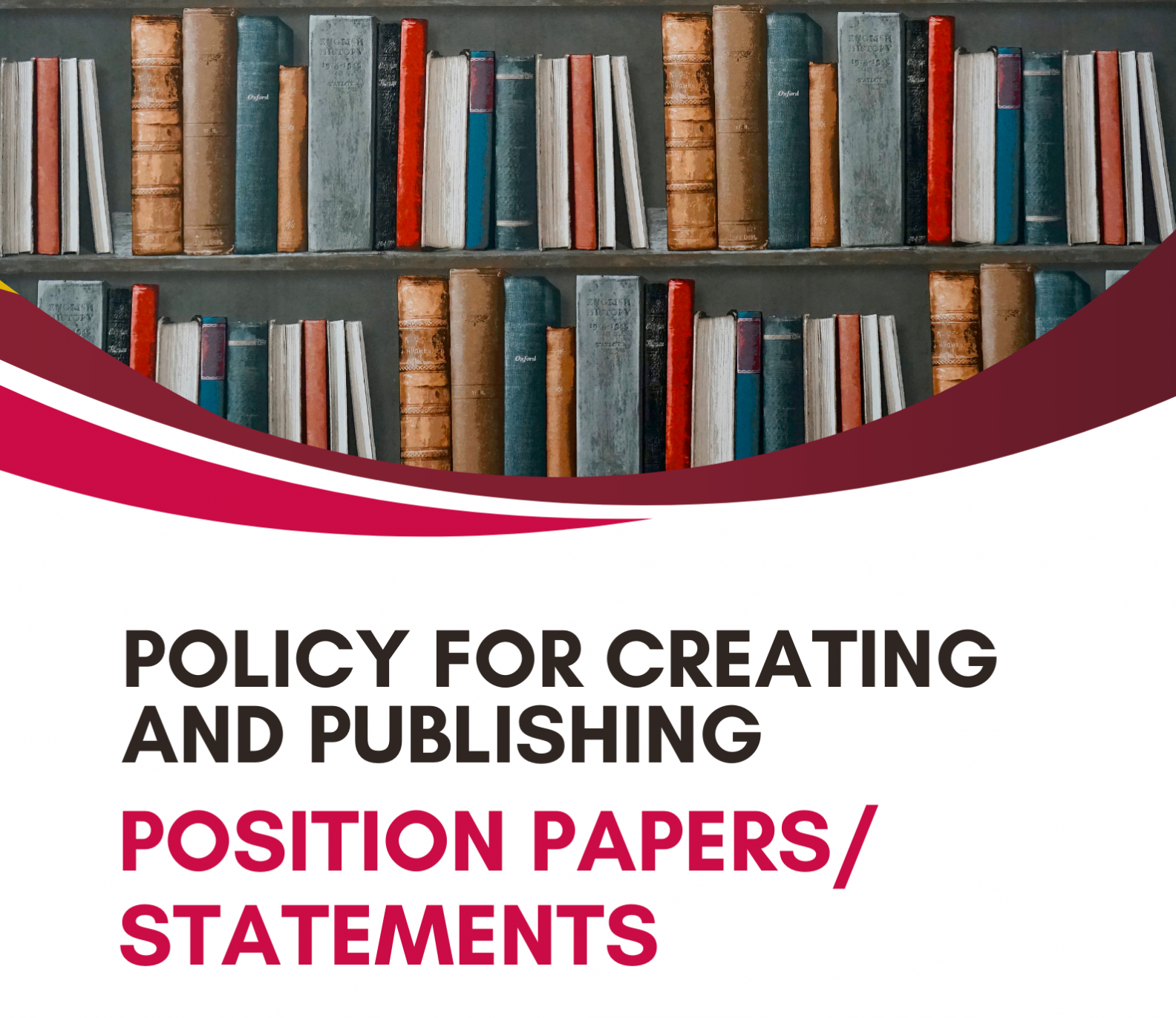



I. OVERVIEW
The Psychological Association of the Philippines, (PAP) as an Accredited Integrated Professional Organization for psychometricians and psychologists of the Professional Regulation Commission is committed to promoting excellence in psychology’s teaching, research, and practice. Further, the PAP strongly adheres to the Code of Ethics for Philippine Psychologists and Psychometricians based on Philippine legislations pertinent to the psychology profession (RA 10029 or the Philippine Psychology Act of2009, RA 11036 or the Philippine Mental Health Act of 2018, and RA 10912 or the Continuing Professional Development Act of 2016). Thus, the need for an established policy to create and publish position papers or position statements is hereby proposed in order to ensure the correct practice of ethics, professionalism, and collectiveness which are perfectly aligned with the vision, mission and goals of PAP.
II. SCOPE
This Position Paper/Statement policy shall apply to the whole representation of PAP including but not limited to: the Board of Trustees, the Leadership Council, PAP members and other PAP stakeholders. This shall be enforced upon the approval of the PAP BOARD and may be revised as needed.
III. PROCEDURES
1. Identification of Need
• The need for a position statement/ position paper may be identified by any member of the PAP, including the Leadership Council (LC), specialty divisions, special interest groups, and regional chapters.
• The identified issue/concern or need should be of significant concern to the profession, the public, or both and clearly aligned to the PAP’s vision, mission and purposes of the organization as stated by the PAP bylaws. This shall also be applied to joint position papers/statements initiated by or with other key agencies and other stakeholders.
2. Initial Proposal Submission
• A brief proposal/overview of the position statement/paper should be submitted to PAP Public Interest Committee chairperson detailing:
• The issue/need/concern to be addressed.
• Its relevance to the profession and the public.
• The proposed timeline for drafting the position statement/paper.
• The proposal may originate from an individual member, group of PAP members, or a specialty division within the PAP.
3. Review and Approval for Development
• The Public Interest Committee reviews the proposal for relevance, priority, and resource availability. The Public Interest Committee may also delegate the review to the most qualified expert/ resource person within the PAP BOT (officers and/or members)
• Upon approval, the issue/need/concern is assigned to a task force or an ad hoc committee, possibly involving LC members or external experts.
4. Drafting the Position Statement
• The designated group of experts/stakeholders drafts the position statement, ensuring that it is evidence-based, relevant, and aligns with the PAP's values and ethics, vision and mission.
5. Review and Revisions
• The draft is reviewed by the Public Interest Committee and possibly other relevant committees or board members within the PAP.
• Feedback will be provided, and necessary revisions will be made following the proposed timeline
6. Approval by the Board of Trustees
• The final draft is submitted to the PAP Board of Trustees for approval.
• Once approved, the statement is considered an official PAP policy.
• In cases where there is failure to comply with the provisions of this policy, the PAP will not grant the representation of the organization in the publication of the position paper/statement. However, if there is an identified need, a review from PAP’s legal consultant will be sought prior to the approval of the Board.
• Purported position papers/statements published without the approval of the PAP Board shall be constituted as prima facie for ethics proceedings. Furthermore, the PAP shall have the right to issue a disclaimer without prejudice to other available legal remedies.
7. Publication and Dissemination
• The position statement will be published on the PAP's official channels, including its website, newsletter, and social media platforms.
• An official press release may be distributed to media outlets.
• The PAP External Relations Officer is responsible for coordinating the dissemination of the statement to ensure it reaches the intended audience, including stakeholders, policymakers, and the general public.
8. Monitoring and Updating
• The impact of the position statement will be closely monitored.
• The statement is periodically reviewed and updated as necessary to reflect new evidence or changing circumstances.
9. Special Considerations
In certain circumstances, these procedures may be relaxed as to the requirement of the 3-week processing time and other provisions upon the recommendation of the PAP Public Interest Committee and the approval of the Board to accommodate urgent position papers/statements that may be required by the any of the following but not limited to : The Congress, Philippine Social Science Council, Philippine Regulatory Board, Department of Health, Department of Justice and Department of Social Welfare and Development.
IV. TIMELINE/TIME STAMPS:
1) Feedback/response from the Public Interest Committee for the approval/rejection/revision of the proposed position paper/statement (1 week upon the receipt of proposal via email)
2) Revision/Appeal from the proponents (1 week upon the receipt of feedback/response from Public Interest Committee via email)
3) Final approval/rejection from the PAP BOT (2 weeks upon the receipt of revised/appealed proposal via email. Note: If the BOT meeting was already done for the current month, then this will be done 2 weeks after the next scheduled BOT meeting)
4) Posting/Publication of Approved Position Paper/Statement: 1 week upon BOT final approval